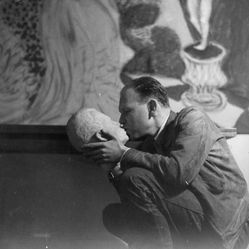top of page

About
Beauty School is Rachelle's independent teaching practice. Home of the Poetry as Play workshop, Beaut Camp summer writing challenge, Clamour magazine, Birthday Parties lecture series, and other opportunities for collective learning, collaborative making, and straight-up hanging out.
Est. Summer 2023
X/IG: @beautyschooledu
New
Beaut Camp is a summer-long writing challenge where you play against the dealer and earn back your tuition by writing a poem every day.
Register by June 20:
Clamour is a Beauty School publication created in collaboration with the 2024 Beaut Camp cohort. Featuring poems, games, style tips, fashion spreads, and other dead-serious works of literature and art.
PDF of Issue #1:
Previous
bottom of page





















